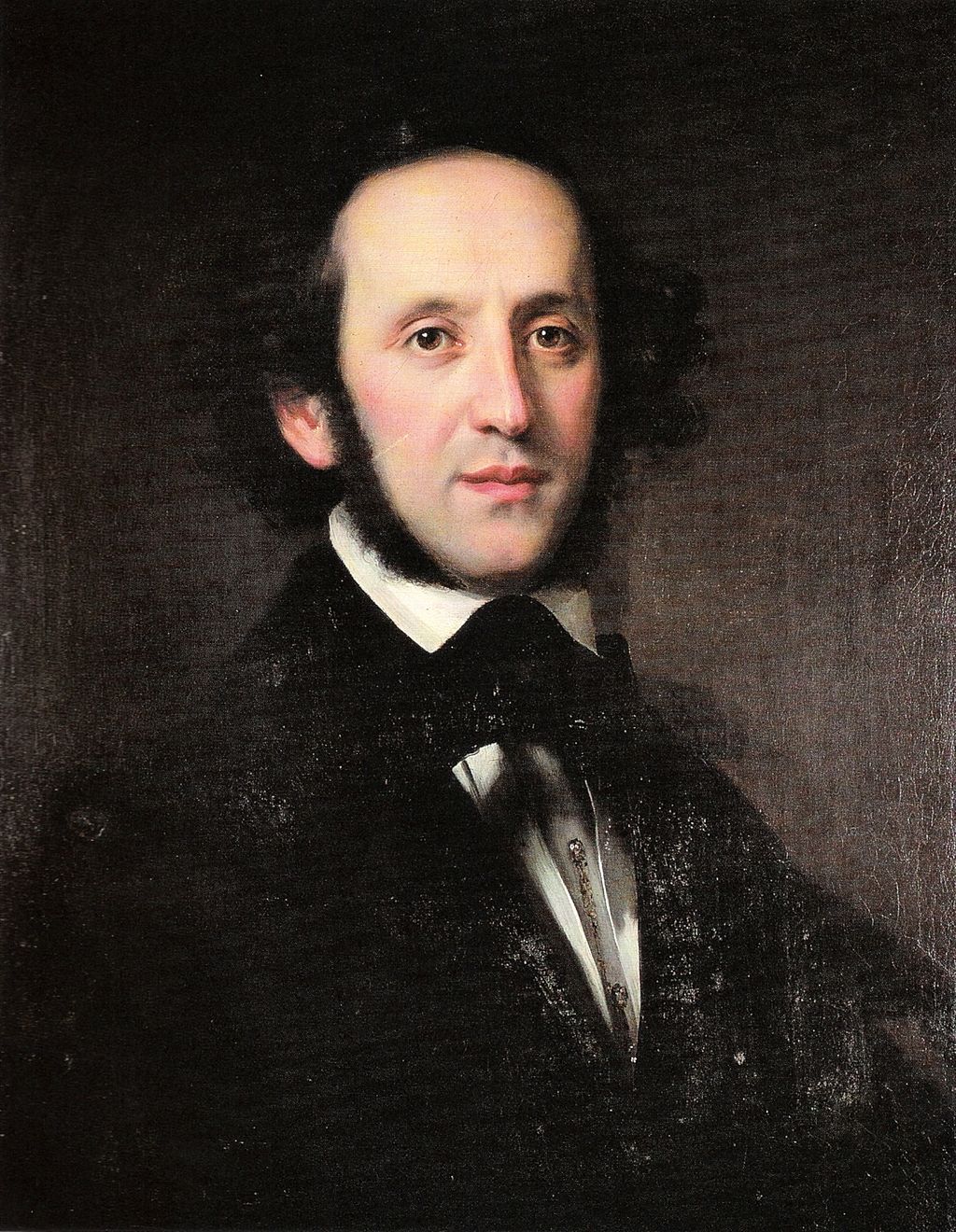 |
| Oil portrait of Felix Mendelssohn Bartholdy, painted in 1846 by Eduard Magnus. From the Berlin State Library. Via Wikimedia. |
Felix Mendelssohn made his musical debut at age nine. Born in Hamburg in 1809, he came from a distinguished German family that moved to Berlin in 1902. His grandfather and father had been successful businessmen who also made it a point to provide their children with an excellent education in the liberal arts. His grandfather was also a philosopher, the famous German enlightenment philosopher Moses Mendelssohn.
Young Felix was one of the greatest child prodigies of all times and became a famous Romantic composer, pianist, and conductor. He was handsome, witty, and entertaining, well liked and respected by his colleagues. His best-known works, still on the repertoire of the great concert halls, are the overtures to A Midsummer Night’s Dream and to The Hebrides, and the Italian and Scottish symphonies. He worked as conductor first in Berlin, then in Düsseldorf, and also in Britain where he was greatly admired by Queen Victoria, and he reached the apex of his career in 1835 when he became conductor of the prestigious Leipzig orchestra. His elder sister Fanny was also a talented composer. She wrote over 460 pieces of music, some published under his name, and wrote in a genre called Song Without Words. Mendelssohn was devastated when she died in 1847, and he died himself six months later.
The Mendelssohn family had a strong history of strokes. Both his grandfather and father died suddenly in their 50s; their deaths were certified as “cerebral apoplexy.” Fanny’s sudden death at age forty-two on May 14, 1847 was also typical of a cerebral hemorrhage. In October of the same year, Mendelssohn suddenly developed a severe headache and became agitated, cold, and clammy with a slow pulse, and was treated by the application of leeches. He improved but several weeks later had a further series of strokes and died on October 1, 1847. Whether hypertension was also present is not known because sphygmomanometers had not yet been invented and no autopsies were done. The strong family history of sudden strokes, however, suggests cerebral hemorrhage from the rupture of congenital berry aneurysms.
Berry aneurysms are dilated parts of a blood vessel, usually situated at the base of the brain, causing cerebral bleeds upon rupturing, and sometimes affecting several members of a family. Screening with magnetic resonance angiography (MRA) or computerized tomographic angiography (CTA) is recommended for individuals with two or more first-degree relatives diagnosed with intracranial aneurysms. One may also speculate that had Mendelssohn been alive today, the presence of a berry aneurysm might have been detected and surgically obliterated. One wonders what further musical treasures he might have produced.
References
- John O’Shea. Was Mozart poisoned? Medical investigations into the lives of the great composers. St. Martin’s Press, New York, 1990.
- Hitchcock E and Gibson J Genet Couns. 2017; 26(1): 21–31.
GEORGE DUNEA, MD, Editor-in-Chief

Leave a Reply